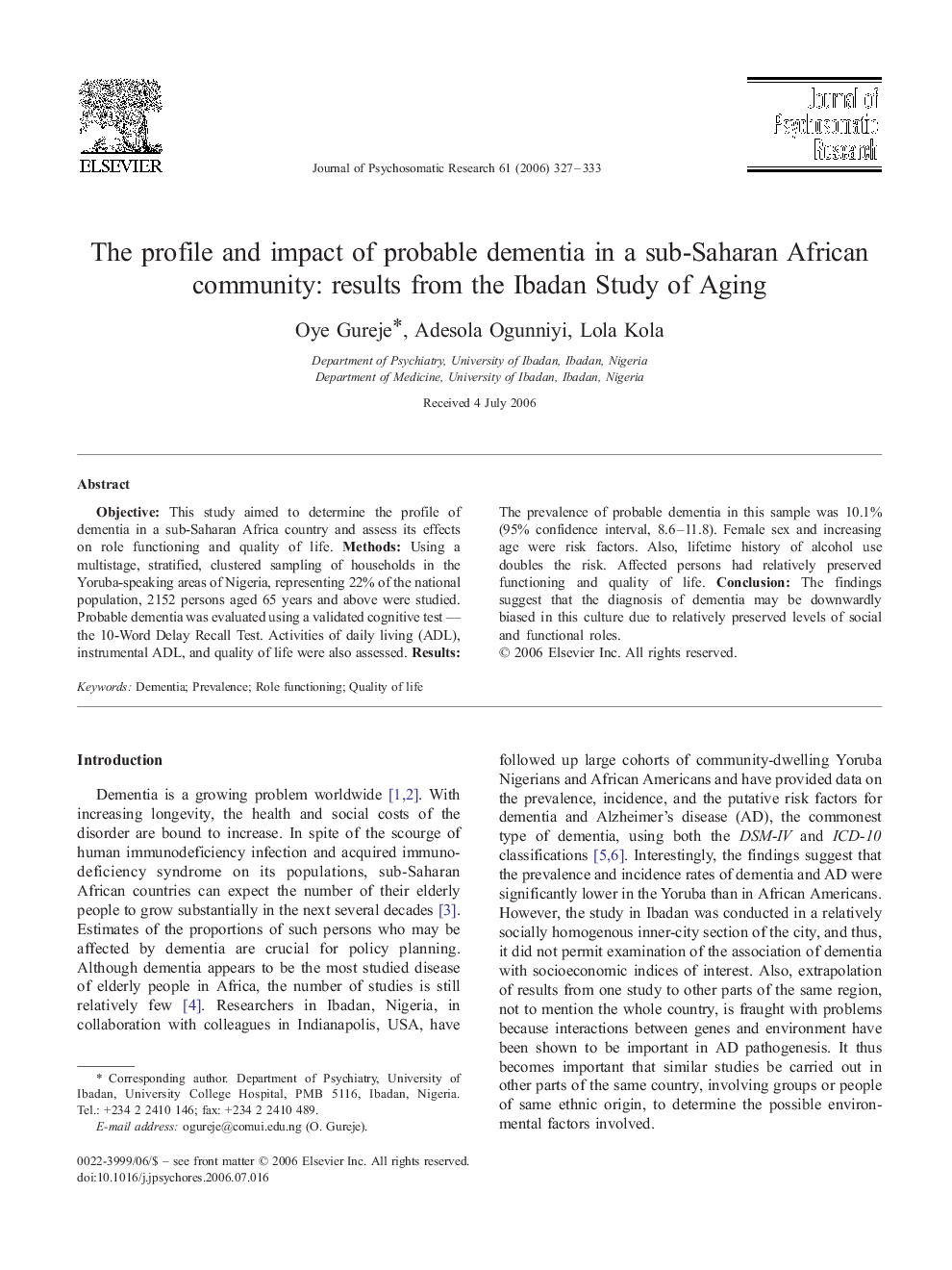| Article ID | Journal | Published Year | Pages | File Type |
|---|---|---|---|---|
| 950896 | Journal of Psychosomatic Research | 2006 | 7 Pages |
ObjectiveThis study aimed to determine the profile of dementia in a sub-Saharan Africa country and assess its effects on role functioning and quality of life.MethodsUsing a multistage, stratified, clustered sampling of households in the Yoruba-speaking areas of Nigeria, representing 22% of the national population, 2152 persons aged 65 years and above were studied. Probable dementia was evaluated using a validated cognitive test — the 10-Word Delay Recall Test. Activities of daily living (ADL), instrumental ADL, and quality of life were also assessed.ResultsThe prevalence of probable dementia in this sample was 10.1% (95% confidence interval, 8.6–11.8). Female sex and increasing age were risk factors. Also, lifetime history of alcohol use doubles the risk. Affected persons had relatively preserved functioning and quality of life.ConclusionThe findings suggest that the diagnosis of dementia may be downwardly biased in this culture due to relatively preserved levels of social and functional roles.
